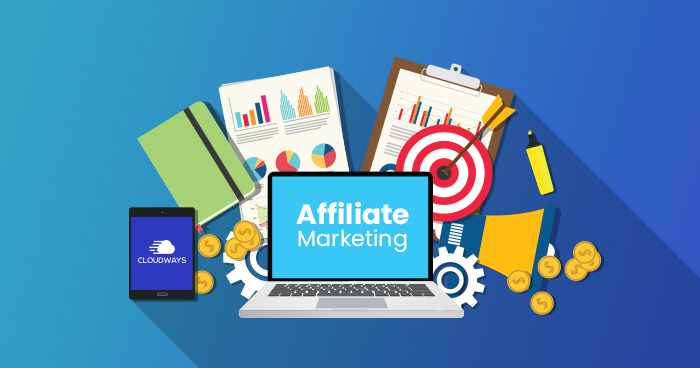
For companies looking to harness the power of word-of-mouth marketing to expand their audience, prospects, and fans, affiliate programs may be the answer. Here are a few common questions we hear from clients looking to develop an affiliate marketing strategy:
How will my business find new customers?
How can we make a community for our existing audience?
What’s the best way to target specific segments of our audience?
What company wouldn’t want to increase leads with the help of motivated third-parties, rewarding their enthusiastic and profitable support to encourage more work on your behalf?
How does affiliate marketing work?
Affiliate marketing has become a growing trend for simple, easy-to-launch marketing solutions, but the lasting benefits are much more complex. Affiliate marketing is more than a popularity contest with spammy-looking content. Programs that are strategically planned and managed have the power to inform new customers and direct new revenue to your business.
By definition, affiliate marketing is a transaction between a company and an entity where the business receives customers (or leads) in exchange for a financial incentive.
It’s a highly efficient marketing strategy because brands specify the cost for a specific action being driven. For example, Company X offers affiliates with a 10% incentive on referred sales or Company Y offers affiliates $100 per lead – in both cases, the companies can easily measure ROI on the number of new buyers or prospects brought in by affiliate marketing.
Consumer brands and B2B companies leverage affiliates as part of their overall relationship marketing efforts, but the challenge with affiliate marketing is that brand recognition has a big impact on success. Specifically, B2B affiliate marketing can increase lead generation, as long as your brand and your affiliates are on the same page.
What does that mean?
Well, traditionally, brands that leveraged these partnerships had to join a network to access affiliates. Attracting “affiliates” was an arduous process and, often, brands had to compete for “space” on an affiliate’s blog. This led to many bidding wars and higher commission rates, which at the end of the day, would lower the brand’s margins. Especially if your brand was newer to the market or less known than your competitor (who in turn, typically had deeper pockets).
Now while that process is still very much alive and kicking, it also leads us to how affiliate marketing has changed over the past decade. Today, more and more savvy marketers are taking ownership of affiliate marketing and cutting out the middleman (aka the network), so they are able to develop better working relationships with affiliates. More so, brands using affiliate marketing strategies are focusing on collaboration. It’s no surprise that by 2022, the affiliate marketing industry is forecasted to eclipse the $8 billion mark.
While managing your own in-house affiliate network may take more work upfront, the affiliate partnerships created tend to be stronger, better for your business, and more authentic. Even more importantly, by managing an affiliate program in-house, your marketing team has the ability to better track and optimize affiliate marketing efforts.
How to Start Affiliate Marketing: 3 Tips for Success
Whether you’re launching your first affiliate initiative or just curious about which benefits to expect from a successful affiliate marketing program, here are 3 tips to help you keep your affiliate marketing efforts in check.

Tip #1: Don’t Overlook Your Customers
At first glance, many people cite big-name bloggers, celebrity co-signs, incentive motivated promoters, and influencer shoutouts as affiliate marketing examples. Believe it or not, there are members of your existing customer base with social followings and well-known platforms that can rival the reach of bloggers that are unfamiliar with your product or service.
From a strategic perspective, customer referrals push affiliate marketing programs along more quickly and organically than hit-or-miss blanket outreach. In fact, 82% of Americans say they seek recommendations from friends and family when considering a purchase.
A successful affiliate marketing program will have a system for incorporating your existing list of customers into an elevated affiliate experience. Tapping into this immediate network avoids the possibility of creating a distant, corporate voice throughout your channels. Your customers want to hear from people that are like them and can really vouch for your brand from a buyer’s perspective.
Tip #2: Provide Affiliates With Marketing Collateral
Recognizable and consistent digital branding materials can differentiate one affiliate program from another in today’s technologically driven world. Having an easy-to-access portal for affiliates empowers you to communicate with your affiliates and provide materials at ease. This means that your latest piece of marketing collateral can be uploaded directly to the portal and distributed to your affiliates to share on their blogs, websites, and mobile-friendly platforms.
Creating and disseminating branded materials that maintain your company’s look and feel gives your affiliates the freedom (and confidence) to spread the word in a brand-approved way.
Tip #3: Automate Manual Processes In Your Affiliate Program
The time, money, and resources required to wrangle your affiliates into a streamlined program, becomes much more manageable when you can perform tasks with the click of a button. If your current system requires spreadsheets and business cards then, chances are, you aren’t experiencing the full benefits of an automated affiliate marketing program.
Automated affiliate programs provide each affiliate with analytical reports on their progress and allow companies to link affiliates to specific campaigns. This approach transforms your email list from a static checklist of names to a dynamic group of brand voices. The analytical capabilities of automated affiliate programs are a major draw for companies that want to promote transparency between the brand and its affiliates.
Perhaps the most important automated process for affiliates (and companies) is the reward payout system. According to a recent survey conducted by Harris Poll on behalf of Ambassador, 88% of Americans say they would like some sort of incentive (money, product or service, loyalty points, early access, swag) for sharing a product via social media or email. Additionally, 77% of Americans say they prefer money. The most successful affiliate marketing programs have seamless, automated cash payout systems and incentivizing rewards.











0 comments:
Post a Comment
Please do not enter any spam link in the comment box.